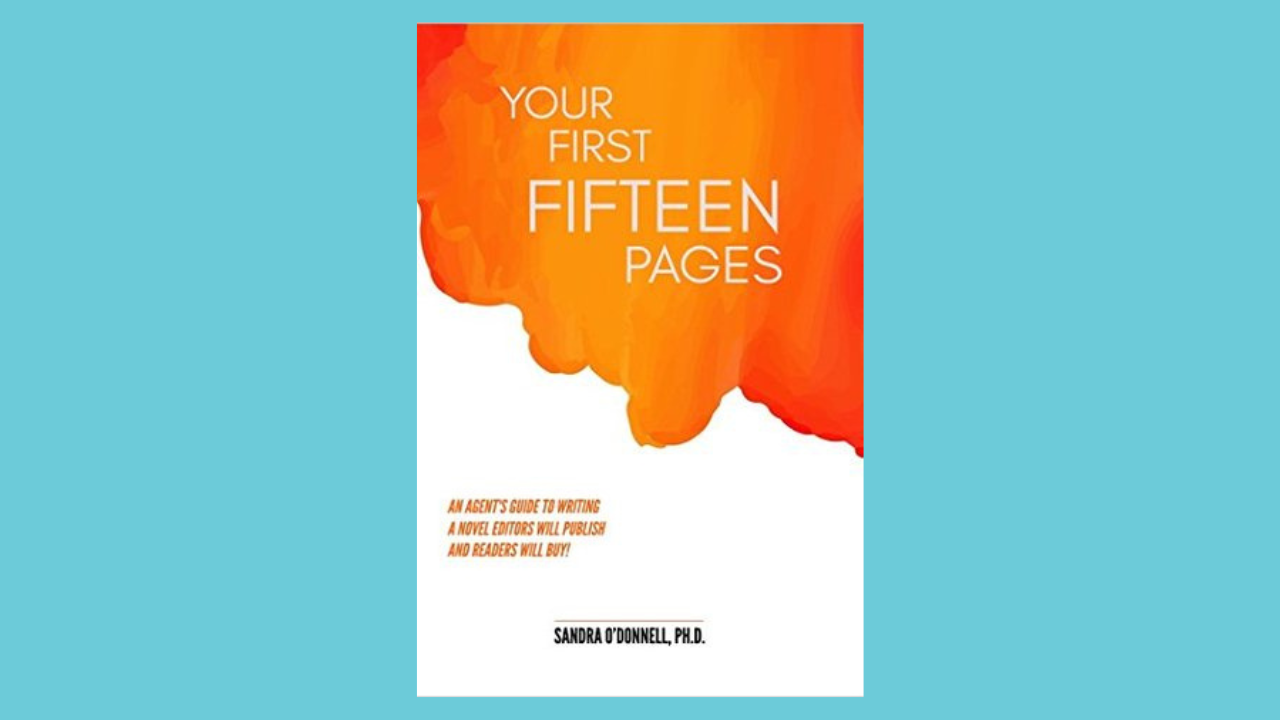Recommended Resource: Your First Fifteen Pages

Post written by Katie Wall. This post contains an affiliate link. This means if you click on the link and purchase an item, we will receive an affiliate commission at no extra cost to you. All opinions remain our own.
It's fairly common knowledge that the first pages of your manuscript are crucial for grabbing your reader's attention—whether that reader is an agent, publisher, or book fanatic.
What might be lesser-known information is how to make your first pages grab your reader's attention. That is what Your First Fifteen Pages is all about.
Sandra O'Donnell, PhD, is a literary agent and book coach who wrote this book to help writers understand what they can do to make the beginning of their manuscript hook their readers and ultimately have agents and publishers begging to sign writers instead of sending rejections (or just not responding at all).
As she writes in the introduction, "Fifteen pages may seem an unfairly short or arbitrary number of pages to determine if the writing or the story is worth pursuing. But honestly, by reading the first fifteen pages of the manuscript, I know what I need to know, which is:
- If the writing is fresh, beautifully wrought, moving, or exceptional.
- What drove the story into being—the inciting incident.
- Who the main characters are and what makes them interesting and distinct.
- When and where the story is set—the time frame, place, or historical period.
- The genre—is the story a romance set in Tuscany, a WWII revisionist history, a coming of age LGBTQ, a YA dystopian set in the past, or commercial fiction about life after death?
- If the point of view feels right for the story.
- If the writer is the only person who has read the manuscript" (pg. xii).
Throughout the chapters of the book O'Donnell addresses each of these elements by teaching her reader key terms and explanation, giving examples of the concept she is focusing on, and providing resources and action items. She also spends some time near the end of the book explaining her perspective as an agent who has to review queries and reject many of them.
While I highly recommend this book for the content overall, I do have two points that are "cons" for me.
- First, this book was clearly not proofread by an editor. There are so many comma errors (and, frankly, some typos) that in places it was hard for me to keep reading. As an editor these errors jump out at me and were very distracting. For an author who, as a literary agent, complains in this book about queries coming in with typos and how writers need to make sure their manuscripts are free of grammatical errors, it was ironic that her own book exhibited many of these issues.
- Second, the chapter on point of view was disappointing. I thought O'Donnell could have included more material, such as to address the issue of head-hopping. I also thought some of her phrasing around the concepts she did address in this chapter could potentially confuse her readers.
Other than these two issues, though, I thought this little book (around 130 pages) was an accessible, quick, and handy read. I highly recommend picking up a physical copy, as you'll want to underline key concepts for you to apply as you revise your own first fifteen pages—and the rest of your manuscript.
Already read this book and applied the concepts to the best of your ability? Then it's time to join the waitlist for my First Pages Group Coaching course!
Stay connected with news and updates!
Sign up to receive our newsletter, special coupons for our products, and announcements about our growing selection of tools for authors!
We hate SPAM. We will never sell your information, for any reason.




